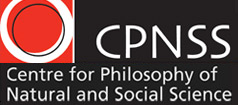How many hairs must a person lose before they become bald? There doesn’t seem to be an easy way of answering this. This is because “bald”, along with a large number of other words, is vague. This vagueness causes problems and Anna Mahtani specialises in thinking very precisely about these problems…
A Problem of Vagueness
We can all accept that those whose heads are entirely hairless are bald. It also seems plausible to suggest that one single hair does not make the difference between being bald and not being bald. However, if we accept these two reasonable sounding claims and then consider a series of people each with one more hair on their head than the last, then we seem compelled to accept that a person with a million hairs on their head is also bald. This seems like a problem – and it doesn’t just apply to the word “bald”.
One proposed solution to the problem, epistemicism, holds that the key to resisting the above “sorities” argument lies in its second claim: it simply isn’t true, claims the epistemicist, that one single hair does not make the difference between being bald and not being bald. What seem like vague terms – such as “bald” – are actually perfectly precise, however (and here’s the catch) although such terms do have precise definitional boundaries, we don’t (and cannot) know where these boundaries are.
Anna Mahtani, recently appointed as an Assistant Professor in the Department, obtained her PhD for her work on vagueness. The title of Anna’s PhD thesis was ‘New Objections to the Epistemic Theory of Vagueness’. We decided to ask her some questions about it…
some questions
Q: Hi Anna, congratulations on your appointment. I couldn’t help noticing from the title of your PhD thesis that you object, in some sense, to epistemicism. Before telling us about your new objections, what were the old objections?
A: The fundamental objection is that the epistemic view is counterintuitive! People often just think that it is crazy to say that there is some sharp cut-off point between “bald” and ‘”not bald”. I think that this intuition can be unpacked into two questions:
i) What makes it the case that the boundary lies in any particular place? Why should the boundary to “bald” lie at 2465 hairs, say, rather than at 2466? It isn’t at all plausible to say that there is a boundary out there in nature, that scientists could discover. And it doesn’t seem plausible to say that we have drawn a boundary either. Sometimes we stipulate a (relatively) sharp boundary to our terms: for example, in the UK, for tax purposes a “heavy goods vehicle” is defined as a vehicle that is designed or adapted to have a maximum weight exceeding 3,500 kilograms. But “bald” – and millions of other vague terms and expressions in our natural language – have not been explicitly defined in this way. So what is it that makes the boundary lie in any particular place?
ii) If vague terms have sharp boundaries, why don’t we know about them? On the epistemic view, we can’t know about them. We can’t find out where the boundaries lie by carrying out scientific research projects, by introspection, by taking surveys of speaker’s intuitions – or in any other way. But why is this? These are terms in our own language: if they have sharp boundaries, surely we should be able to know where they lie?
This point is especially vivid if you think about terms that you had a hand in coining. As a child, my brother and me had a made-up word – “sprinkle” – that we used for the sort of sand that runs through your fingers and is no good for making sand-castles with. This is a vague term: you can imagine starting off with a clear case of sprinkle and adding water drop by drop until you end up with a bucket of sludge that is clearly not sprinkle. Intuitively no single drop of water made the difference. But on the epistemic view, “sprinkle” has a sharp boundary: there is a point in this series at which a single drop of water turned the sprinkle into non-sprinkle. And we – even as the coiners of the word – can’t know where this boundary lies. That seems counterintuitive.
Q: And the new objections?
A: The objections that I make in the thesis are objections to a powerful defence of the epistemic view by Timothy Williamson. Here I describe one way that I have objected to this account.
Williamson has argued that ignorance about where the boundaries to vague terms lie is just what we would expect under the hypothesis that vague terms have sharp boundaries. His argument draws on the idea of “inexact knowledge”. To get an idea of what is meant by ‘inexact knowledge’, consider your current knowledge of the number of words on this webpage. Unless you have counted the words, your knowledge is inexact. You might know that there are more than 1000 words, and fewer than 3000, but you will not know for any n that there are exactly n words. Even if for some n you were to believe truly that there are exactly n words, your belief would fall short of knowledge. This is because your belief is not safe: though it is true, it could easily have been false. I could have included an extra word or left one out without you noticing and adjusting your belief accordingly.
Williamson argues that (under the hypothesis that vague terms have sharp boundaries) your knowledge of the boundaries of vague terms is similarly inexact. The thought is that vague terms are unstable: a small and imperceptible change in our use of the term “bald” would shift its boundary. So even if for some n you were to believe truly that the boundary to “bald” lies at n, your knowledge would not be safe: though your belief is true it could easily have been false.
I argue against this in two ways. First I question the account of inexact knowledge: we can construct cases where a person’s knowledge is inexact, but where a true belief may nevertheless be “safe” in Williamson’s sense. Secondly I argue more generally that Williamson has not shown that if vague terms have sharp boundaries, then ignorance about where those boundaries lie is just what we should expect: from the perspective of someone who finds the epistemic view counterintuitive, if vague terms had sharp boundaries, then the terms would be stable rather than unstable.
Q: What do you see as the most promising alternative account of vagueness?
A: Perhaps surprisingly, writing the thesis did not put me off the epistemic account. I have argued that it faces some serious problems, but that is not to say that there are no solutions. My hope would be that the account can be made to work.
One reason to hope that it can be made to work, is that it follows from classical logic – together with some intuitively compelling claims. If you try to deny the epistemic view, then (unless you are prepared to say some other strange things) you end up contradicting yourself. You can get a feel for this if you try saying that “bald” has “borderline cases”, and mean by this that there are people who are neither bald nor not bald. This is a contradiction: if someone is not bald, then they cannot also be not not bald!
Another reason to hope that the epistemic view can be made to work is that every alternative account has problems that are (in my view) at least as serious. Take for example the ‘degree theory’ account. On this account, sentences are not simply true or false, but rather have a “degree of truth” between 0 and 1. So if you imagine a person with a full head of hair, then the sentence “this person is bald” will be true to some very low degree – perhaps degree 0. If we now imagine someone with slightly less hair, then the sentence ‘this person is bald’ will be true to some higher degree, and for a person with no hair at all, the sentence ‘this person is bald’ will be true to degree 1.
This account looks attractive – at least on the surface: we do sometimes say, after all, that a claim is “true to some degree”. But all the objections to the epistemic view seem to apply with equal force to this view. On this view, a sentence like “a man with 1543 hairs is bald” is true to some degree: i.e. there is some number n between 0 and 1 that is the degree of truth of this sentence. But what makes it the case that the degree of truth of this sentence is n, rather than, say, n+0.0001? And it seems that we don’t know what degree of truth a given sentence has: but why can’t we know what degree of truth a sentence has?
Of course, responses have been made by degree theorists to this sort of objection, but it is not obvious that they work – or if they do work, why the epistemic theorist can’t respond in a similar sort of way.
Q: Finally, could you tell us a bit about how this work relates to wider issues in the philosophy of language, in philosophy in general or even outside of philosophy?
A: One question that work on vagueness raises is this: how should we reason? Should we reason in line with classical logic, or should we abandon classical logic in favour of some alternative logic? The epistemic theorist claims that classical logic holds for ordinary language, but on the degree theorist’s account we need to construct a new sort of logic that works with degrees of truth rather than simply truth and falsity. The answer to the question ‘how should we reason’ has a wide-reaching effect on philosophical work.
To give just one example, I recently heard Crispin Wright discuss whether we should infer from the claim that one person asserts P and another asserts not-P that one of the two people must be mistaken. On classical logic, of course, this follows: either P is true (in which case not-P is false), or P is false (in which case not-P is true). But on some alternative logics, this does not follow. This can have implications for our judgements about disagreement in all sorts of areas of philosophy.
As to how work on vagueness affects issues outside philosophy, it is clear that philosophy has something of value to say. Should law-makers attempt to make the terms that they use precise? How should we evaluate the “slippery slope” arguments that we find discussed in the media, and that policy makers consider? More generally, I think that investigating paradoxes – such as the one you present at the start of your introduction – make us rightly cautious about our own powers of reasoning. From apparently compelling premises, and apparently valid reasoning, we can nevertheless be led astray.
A selection of Anna’s publications, including some of her work on vagueness, can be found here.




